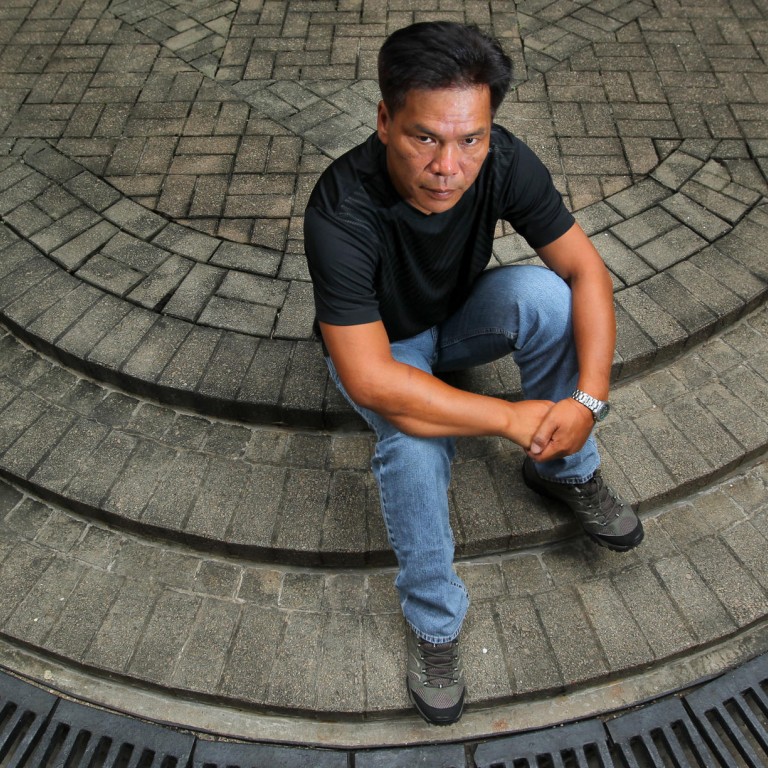
Survivors' lives changed by their experiences in Lamma ferry disaster
Two survivors of the Lamma ferry tragedy tell of their experiences in the second of our two-part series marking the anniversary of the disaster
The night of October 1 last year taught Hebe Cheng Yuen-ki the true meaning of the biblical verse that says it is more blessed to give than to receive.
For Lee Ming-sun, that night will always be associated with a heartbreaking, split-second decision - to help save a man's life, rather than continuing to search for his wife.
Cheng, Lee and their families were among 121 passengers who boarded the Hongkong Electric launch Lamma IV for what was supposed to be an evening of celebration spent watching the National Day fireworks from Victoria Harbour.
Thirty-nine people died after the ferry collided with the Sea Smooth, owned by Hong Kong and Kowloon Ferry Holdings, in the waters off Lamma.
Cheng recalls risking her own life by sliding down the deck of the sinking vessel to grab two life jackets to save her two daughters, then aged six and four.
It was at that moment that the 30-year-old faced a life-or-death situation when an elderly woman asked her for one of the jackets.
"If I didn't give one to her, I knew for sure that she would not survive," said Cheng, 30.
She said that, having given the woman a jacket: "I thought I would have time to go out and grab one more life jacket, but soon I was washed to the sea and found myself trapped with a rope around my neck."
The devout Christian says the rope unwound after she prayed.
She was later to learn that her decision to give away the jacket may inadvertently have saved the lives of her entire family.
"If I had not have given one of the life jackets to the elderly woman, we would all have died for sure because I would have gone back in the cabin to be with my daughters," Cheng said.
"The [commission of inquiry] report later revealed that the row of chairs which my husband and daughters were hanging on to would not have been able to withstand the weight of all four of us."
Her family escaped Hong Kong's worst maritime tragedy in decades with nothing more than a few scratches, and then attempted to resume normal life straight away.
"We brought our daughters to a gathering with friends - as had been scheduled - the next morning … and our daughters went to school the next school day without applying for leave," Cheng said.
She recalls her feelings a few days later as she helped one of her children with her schoolwork. "A few days earlier, I had been struggling for my life in the sea and then that day, I was living my normal life again," she says.
"It did take me some time to get used to everything once more."
Cheng says her daughters have emerged braver and more confident since the tragedy, although her elder daughter did seem a little distracted and more absent-minded than before, in the immediate aftermath of the accident.
The only lingering effect of their brush with death is a fear of long-haul journeys, which is not limited to travel by sea.
Cheng said the family had started making crossings on the Wan Chai to Tsim Sha Tsui ferry to gradually rebuild their confidence and overcome their fears.
While some survivors remain angry at the failings that led up to the tragedy, and what they see as a failure by the Marine Department to sincerely apologise for its failure to uphold regulations and spot the flaws in the ferry's design that contributed to the tragedy, Cheng says she does not bear any grudges against anyone involved.
"If I had not been busy with my daughters' studies, perhaps I would have been quite embittered," she says.
Like Cheng, Lee remembers most vividly a choice he had to make. After putting his nine-year-old daughter and son, aged two, on a life raft, he chose to help a drowning man rather than continue the search for his wife.
"Perhaps it was out of a sense of mission," Lee said.
"It might have been a coincidence but, since I met that person in such a situation, it seems to me that I was destined to offer my help," Lee added.
He knew he would not be able to live with the memory of a man drowning right before his eyes.
The 48-year-old uses the word "fate" repeatedly during the interview.
He believes that, had he not received a last-minute offer of a ticket for the trip, he may not have been there to help his children - or the man he saved. He has not seen the man since.
Happily for Lee, he was reunited with his wife in hospital, and his family avoided serious injury.
But the family has struggled to adapt to a normal life in the wake of the ferry disaster.
"I often needed to wait for my wife to fall asleep first while keeping the lights on because she had a fear of darkness the first few months after the ferry accident," Lee said. He says he understands that many of his fellow survivors will still be haunted by the events of October 1, 2012.
"Some of them now may still be scared of water or taking the ferry again over the past year," he said. "I hope they can soon take the first step towards overcoming their fear."
